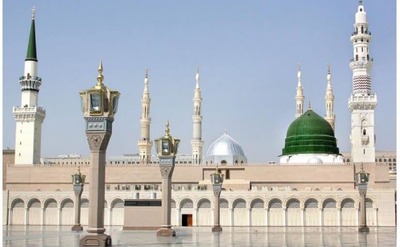
Prophethood in Islam
Allah (God), the Creator of the universe and everything in it, created humans for a noble purpose: to worship Him alone and lead a virtuous life based on His teachings and guidance. However, one cannot fulfil this purpose without receiving clear guidelines from Allah. Allah, the Most Merciful and Just, did not leave us to wander the Earth aimlessly. In order to inform us of our purpose, Allah appointed certain individuals to communicate and demonstrate His message to all of mankind. These individuals are known as Prophets, which include Adam, Noah, Abraham, Moses, Jesus and Muhammad – may peace be upon them all.
The Characteristics of Prophets
All Prophets have common characteristics which make them exceptional human beings.
Prophets receive revelation
The main difference between an ordinary human being and a Prophet is that a Prophet receives revelation from Allah.
Prophets have noble character
Prophets never sought personal benefits such as wealth, high status or power – rather, they only sought the approval of God.
Prophets were the best examples amongst their people in character and righteousness. They lived in obedience to God, with excellent morals and were always truthful in speech and conduct. For this reason, Muslims reject totally the false attribution of major sins to the Prophets, as appears in some scriptures of other religions.
Prophets perform miracles
Many Prophets performed miracles, usually in a field which their people excelled. For example, the people of Moses (peace be upon him) excelled in magic; therefore, Moses (peace be upon him) was able to perform miraculous acts which even magicians could not perform. The people of Jesus (peace be upon him) excelled in matters of medicine; therefore, Jesus (peace be upon him) was able to perform acts of healing beyond the skill of his own people. The people of Muhammad (peace be upon him) excelled in poetry; therefore, Muhammad (peace be upon him) delivered the Quran, containing such eloquent words which no poet could ever compete with. In addition, many Prophets conveyed truthful prophecies of future events. Such miracles were performed only with the permission and assistance of Allah, proving that they were human, and not divine.
Prophets are not divine
While Prophets are chosen by Allah Almighty, they are in no way divine and should not be worshipped. Prophet Muhammad (peace be upon him) was commanded to say, “I am only a man like you. It has been revealed to me that your God is One God.” Quran 18:110
It is clear even from the Bible, both the Old and New Testaments, that the Prophets were not divine, and would worship and prostrate to the One True God.
“And he [Jesus] went a little farther, and fell on his face, and prayed…” Matthew 26:39
“And they [Moses and Aaron] fell upon their faces…” Numbers 16:22
“And Abram [i.e. Abraham] fell on his face: and God talked with him…” Genesis 17:3
Prophets have necessary qualities
Allah gave all Prophets certain characteristics in order for them to successfully fulfil their mission, such as persistence, courage, leadership, patience and wisdom.
Some examples include:
• The persistence of Noah (peace be upon him) in calling his people to Allah, even though very few accepted.
• The courage of Abraham (peace be upon him) to singlehandedly confront his entire community regarding their false beliefs, while he was still very young.
• The leadership of Moses (peace be upon him) in directing the escape of his people from the most oppressive tyrant of his time – Pharaoh.
• The patience of Jesus (peace be upon him) in enduring the hardships and persecution imposed upon him by his people.
• The wisdom of Muhammad (peace be upon him) in uniting the many rival tribes of Arabia, who had a long history of conflict, into one peaceful community.


